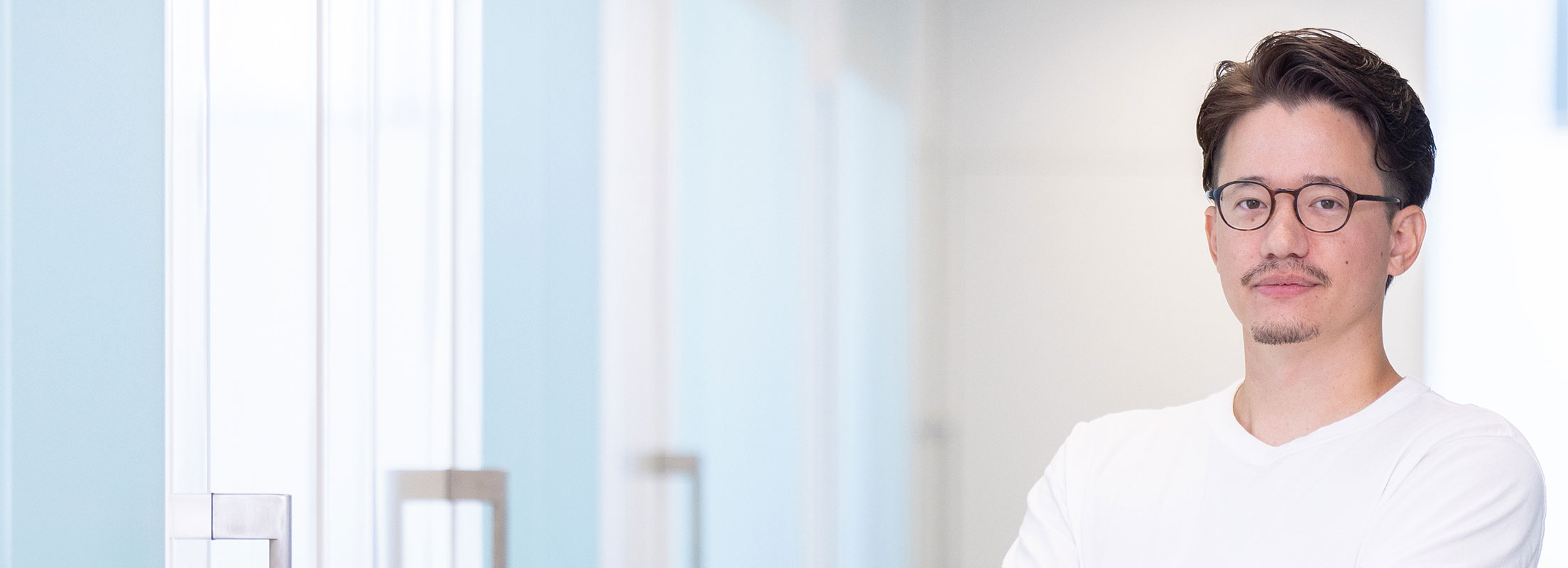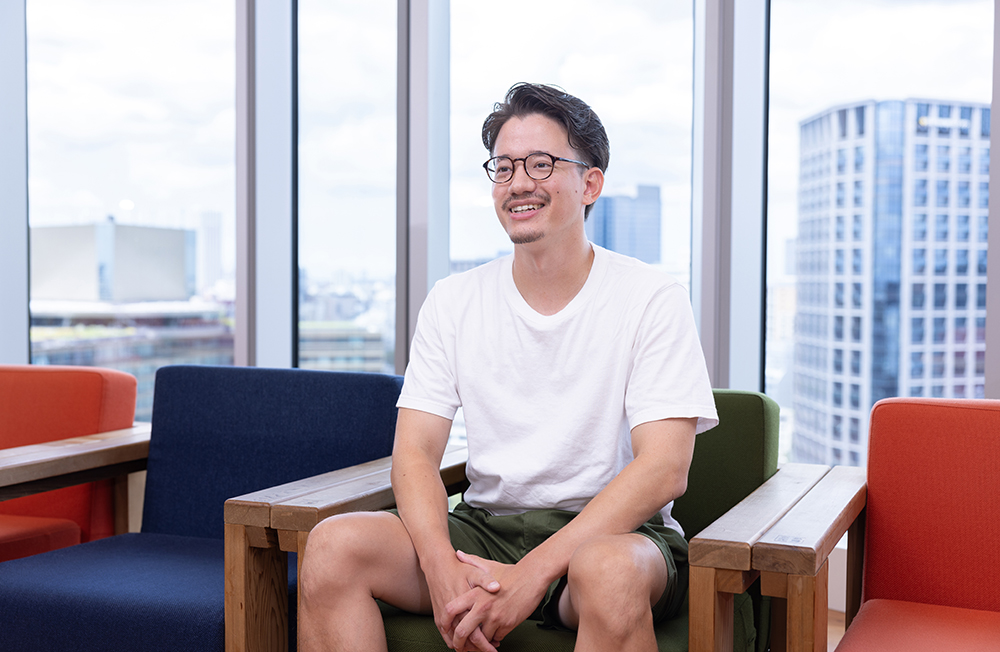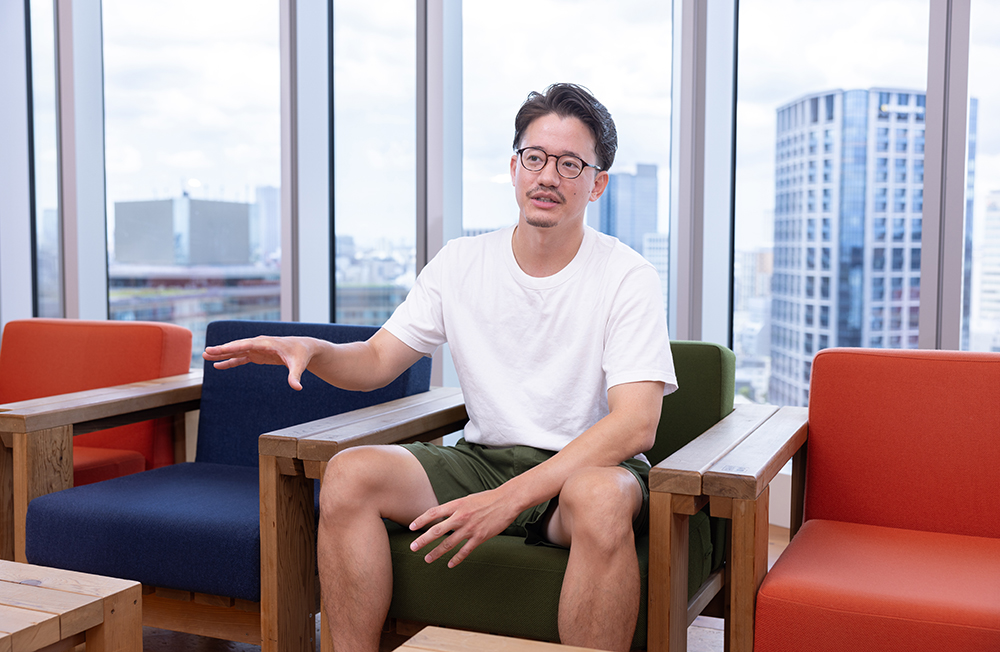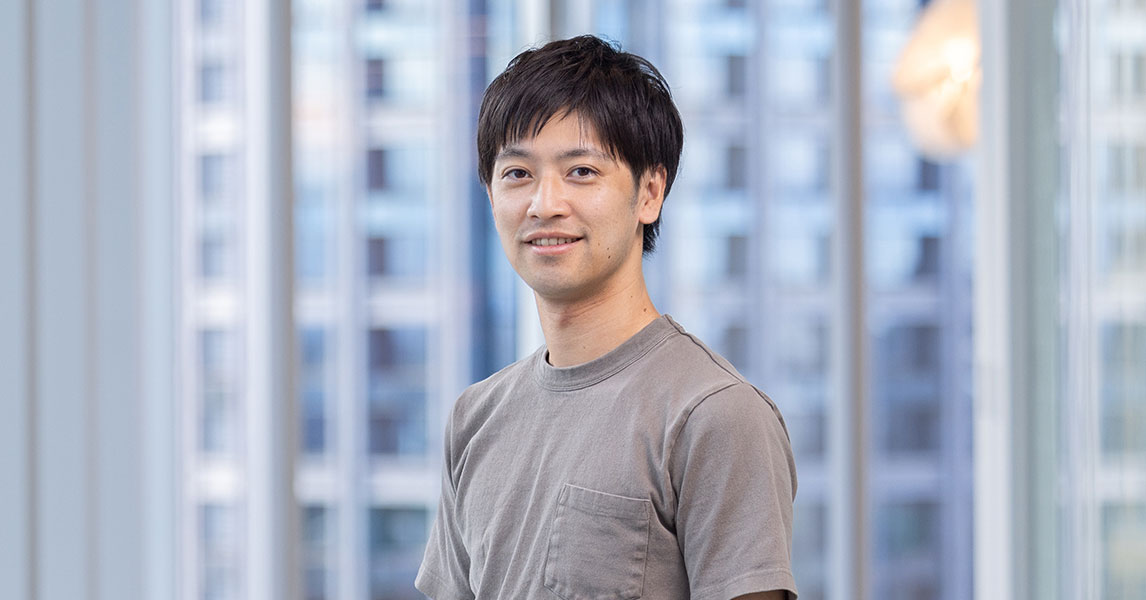Yuto Kawamura
Find and focus on the intersection of what excites me and what people need me for.
Find and focus on the intersection of what excites me and what people need me for.

Yuto Kawamura joined the company in 2015.
After joining LINE Corporation as a new graduate engineer, Kawamura dedicated himself to developing and operating Apache HBase, a distributed database, as well as managing duties related to the talk server, which handles LINE messages. He later became responsible for developing and operating the Apache Kafka platform. Subsequently, he worked on system design and development as a tech lead. Since 2021, he has been working as a manager.
*This article is based on an interview conducted in July 2023. Service names and affiliations are as of the time of the interview.
Please introduce yourself.
My name is Yuto Kawamura. I joined LINE Corporation in 2015 as a new grad. At LINE, we develop and operate a large-scale in-house Apache Kafka (“Kafka”) platform. I have been involved in the project to lead primarily the technical aspects since its launch. Currently, as a principal software engineer, I provide technical directions and engage in development while also serving as the manager of a team responsible for developing and operating the Kafka platform.
In fact, I was already working at LINE even before joining as an official employee. When I was a junior in college, I was a part-timer at livedoor Co., Ltd., which in 2010 became a subsidiary of NHN Japan Corporation (the company later evolved into LINE Corporation). When the LINE app was launched in 2012, I became involved in the development of services related to LINE as a part-timer.
From my junior year as an undergraduate, I continued my part-time work until I completed my master’s degree at graduate school. At the time, I was more interested in developing platforms used by service applications provided to end-users, rather than developing the service applications themselves. I wanted to tackle challenges related to stability and scalability.
My undergraduate research focused on accelerating Docker container startup times, and I was particularly interested in technologies at the lower layers. I mentioned this to my supervisor at LINE at the time and learned that there was a department within the company specializing in building platforms. When I had the opportunity to hear directly from the people in the department, I found their work interesting. This was the main reason I chose to work for LINE after graduation.
My initial duties after joining the company involved the development and operation of Apache HBase, a distributed database, as well as tasks related to the talk server, which handles LINE messages. Less than a year after I started working, a senior team member asked me if I was interested in joining a project to build the Kafka platform. This invitation eventually led to my team's current responsibilities.
Before this project, the talk server communicated with other systems using various protocols and data formats. By consolidating these communications using Kafka, the project aimed to simplify the architecture and enhance process efficiency.
My senior colleague and I developed and operated the Kafka platform together for a while, but the colleague was transferred to another department around 2016. From that point on, I started taking the lead. As the use cases for Kafka within the company increased, it became difficult for me to manage the platform on my own. As a result, we hired engineers to establish a team, where I then engaged in system design and development as a tech lead.
Initially, I was solely responsible for engineering, but over time, I began taking on people management tasks, such as establishing systems for effective team collaboration. Since 2021, I have been working as a manager.
Could you please describe your main responsibilities and the specific workflow you follow?
In each phase of my career, my responsibilities evolved accordingly. When I was a tech lead, I spent most of my time designing and developing features under my purview and reviewing the work of other engineers. I was also responsible for handling alerts and user inquiries, as well as investigating specific technical challenges.
How much time I spent on each task varied from day to day. Some days, I spent the entire day reading and writing code without speaking to anyone. Other days were filled with meetings to communicate with various stakeholders.
For a while after becoming a manager, I focused on people management. Specifically, I regularly held one-on-one meetings with my direct reports, engaged in organizational operations, and revised the hiring system across the entire department, among other management responsibilities.
Once the overall system was established to a certain extent, the organization began to function smoothly without my full commitment to management. As a result, I am now able to spare time on engineering work, which allows me to promote projects together with my new graduate members.

Example of a Daily Schedule
- 10:30 am
- Start work, check emails and Slack messages, decide what to get done by the end of the day, and plan accordingly
- 11:00 am
- Prepare materials needed for the day’s meetings, create and review management-related documents, develop and review code, etc.
- 1:00 pm
- Lunch
- 2:00 pm
- Meeting
- 3:00 pm
- One-on-one meeting with a team member
- 4:00 pm
- Create and review management-related documents, develop and review code, etc.
- 8:00 pm
- End of work
What do you keep in mind at work?
I try to balance the areas where I have a strong interest or find excitement with the work needed by the environment or organization. I am always looking for the intersection of these two aspects.
There was an experience that led me to think this way. For most people, everything feels fun, interesting, and new when they first join a company as a new grad. What’s more, their supervisors and senior colleagues would assign meaning behind every task for them.
As my career progressed within the company, work stopped being something simply given by others. Instead, it gradually became something I needed to create on my own. I once believed that, no matter what the work was, I should commit to it with all my might as long as it was needed by the environment or organization. However, at one point, I realized that this approach alone would no longer motivate me.
As I reflected on why, I realized that what needed to be done was not necessarily aligned with the fields that I am passionate about or find intriguing. This experience taught me the importance of identifying the intersection between my interests or source of excitement and demands from those around me. While some people may find it unprofessional to think this way, I believe that it is crucial that I understand the nature of my thought process and manage how to align my motivation with my work.
Additionally, I emphasize to my team members the importance of avoiding leaps of logic when conducting investigations or explaining things to others. In engineering, it’s vital to meticulously verify each event, as well as use facts gathered as clues to prove another fact. This is why I encourage my team to present their findings in a manner that is crystal clear and understandable to everyone.

Please share your experiences of what has been interesting or challenging in your field of work.
Building and managing the Kafka platform encompasses everything that excites and challenges me. That’s because I've dedicated almost my entire career to this task at LINE, aside from the initial projects I worked on after joining the company. Along the way, there have been many dramatic moments.
Especially after I was promoted to manager and took charge of the platform following the departure of a senior colleague, I recall experiencing significant growth. When working on specific tasks independently, there was no one to highlight what’s significant about what I was doing or guide me where to start among the many available options.
As a result, I had to navigate the cycle of identifying challenges to develop solutions, assessing their significance while persuading others, and driving these tasks forward as projects. Developing this habit has been crucial for my career.
Eventually, I realized that I had accomplished something valuable, as people genuinely recognized my achievements and utilized the systems I had built. In that sense, I feel fortunate to have peers and an environment that fairly evaluates good work.
What is the most rewarding part of joining the company?
Supervisors and senior colleagues do not hold biases against youth or lack of experience. As long as you are a highly skilled engineer, you’ll be entrusted with important tasks even if you are part of a younger cohort.
Additionally, individual members are granted considerable autonomy, so supervisors and senior colleagues often allow you to work without micromanagement. This is not due to a lack of high expectations. Rather, it stems from the philosophy that the best approach is to allow members to work independently provided they have the capability to set their own goals and plans. This environment requires individual members to assess the value of each task and determine how to execute it. Therefore, the more autonomy you embrace, the faster you will grow.

What are your expectations for LY Corporation, and what are you looking forward to in the future?
There are also many excellent engineers at Yahoo Japan and Z Holdings. The corporate merger will not only increase the number of employees but also create synergy in engineering by enabling engineers with similar technical expertise to connect.
At LINE, we have been the only team specializing in Kafka. Meanwhile, both Yahoo Japan and Z Holdings have their own platforms. Connecting with the experts who underpin these platforms helps build even stronger technological organizations.
Furthermore, the merger will expand our capacity to take on new challenges by having more human resources and creating more opportunities for knowledge sharing. With a longer-term perspective in mind, I hope to take on high-value tasks, such as developing innovative software or middleware that could potentially become open-source.
What are your future goals?
I believe many people will strive to pursue a managerial career path once they step into a management role. However, I plan to step down from my managerial position and return to my previous role as an individual contributor, without any direct reports.
When it comes to career path choices, many people and organizations say there is flexibility to transition between management and individual contributor tracks. In reality, however, many people hesitate to step away from the management track either due to organizational circumstances or the perception that it would be a setback in their career. I don’t have many such concerns. Rather, I opt to flexibly take on the role that best enables me to achieve my goals—goals that arise from the intersection of what I enjoy most and what people expect of me in a given environment.

Please share a message to our readers
LY Corporation is one of the companies that present the toughest technical challenges in Japan. Our system serves as an app that supports users’ everyday lives for a vast user base, which results in intensifying two challenges in its development and management: it must not only be highly reliable but also exceptionally scalable.
You can take on such challenging tasks at only a handful of companies in Japan. Even by global standards, it is not easy to find places that offer the same level of challenges. In an environment with stringent requirements for ensuring reliable systems and handling high-scale traffic, even seemingly ordinary technological elements are anything but ordinary. For instance, even a simple task like saving data in a database involves a multitude of considerations. This could add an extra "spice" of challenge to every technical element, making the environment highly rewarding for engineers.
Under these circumstances, we are required to be highly autonomous. This is an unparalleled environment for you to grow if you thrive on the cycle of discovering challenges, seeking solutions, and executing them. As a side note, there are many long-serving members, as well as those who explored opportunities elsewhere but ultimately chose to return. I believe this shows that they find their work fulfilling and, as a result, wish to remain with the company.


